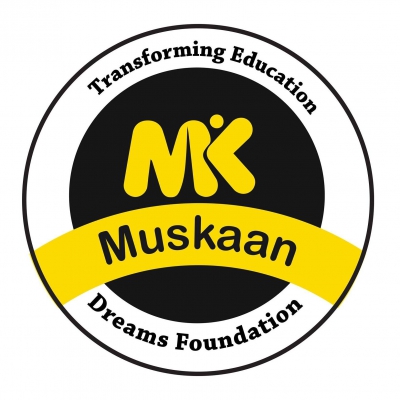
Muskaan Dreams facilitates Digital Learning in Government Schools
Date:

Share post:
Good education means a better India. But sadly, not every child in India gets an equal opportunity to study. During the recent lockdown, India witnessed a massive shortfall in the necessary infrastructure to impart online education. 65% of India’s 250 million children who study in government schools were not well-prepared to handle online teaching and learning. Muskaan Dreams, the award-winning social impact organization recognized by Forbes Asia in 2019, facilitates enjoyable digital learning in Indian rural government schools.
Two engineering graduates Abhishek Dubey and Rishi Raj, way back in 2014, had already identified this problem and wanted to address the gaps in government schools by connecting teachers with technology. Muskaan Dreams is an award-winning youth-driven NGO that aims to bridge the digital divide. It works with: –
- 18000+ children,
- 500+ teachers,
- 133+ digital classrooms,
- 100+ government schools,
- 60+ villages, and
- 3 districts.

The birth of an idea
Abhishek Dubey, a B.Tech student from Gwalior, noticed how differences in privileges affect children. Therefore, one day he decided to talk to and treat few destitute children in his neighborhood to a meal at McDonald’s. While eating, a child asked Abhishek if he could tutor him because he wanted to learn and study but had no one to teach him. Abhishek was surprised that these children wanted to study but could not attend school. It was this meeting with the kids that changed Abhishek’s life forever. So, Abhishek decided it was time to help children who had dreams but not the means.
So, while still in college, he gathered a group of friends and began teaching and mentoring 70 children on the weekends in the orphanages of Gwalior. Soon, he created course modules for destitute children. He was designing full-fledged curriculums and adding on students in Gwalior, Bhopal, and Indore.
Identifying the Problem
The Foundation had identified few problems. They were: –
- Lack of digital resources in government schools,
- Digital models designed for the urban private schools have a very high recurring cost making them unfit for government schools,
- Lack of training and support to teachers and students to use digital resources for teaching and learning,
- E-learning content and virtual classrooms new to rural students.
- Lack of content in local languages, and
- More than 75% of children do not have access to digital resources.

The Model
To ensure positive outcomes in government schools, Muskaan Dreams divided the teaching program into three models: –
1. The Digital Classroom Programme
The model introduces students to modern ways of learning through audio-visual aids. It enhances students’ learning experience and helps teachers to better engage with the students. The learning environment is created by allotting one mentor to a group of 4-5 kids.
2. Teacher Capacity Building
The NGO closely works with teachers every week to equip them with digital resources. The two-year teacher capacity-building program cultivates knowledge, skills, and mindsets necessary for teachers to provide equity in education. Smart TVs, interactive content, and tracking dashboards help improve their digital awareness.
3. Youth Volunteers
At Muskaan Dreams, volunteers work for the betterment of government schools. They conduct various awareness campaigns and workshops for children to expose them to the outside world and prepare them for Digital India.
In addition, students above 18 years receive financial aid, skill development training, and placement opportunities.
How it works
The 5 step process:-
1 – School select
2 – Digital set-up
3 – Shine
4 – Sustain
5 – Exit
After 2-3 years at a Government school, Muskaan Dreams exits from the school but, continues to track their data usage. In addition, the volunteers even revisit the school every quarter. Muskaan Dreams also provideS 24×7 call support to teachers to resolve any problems.

The way forward
The Government of India provides free education as a fundamental right to children up to 14 years. Out of 1.46 million K-12 schools in India, 54% are run by the Central Government/ state governments and 21% by local bodies/ municipal corporations. Only 25% of schools in metropolitan cities are private schools.
For the Digital India initiative by PM Narendra Modi to progress further, it must begin at the grassroots. Muskaan Dreams has shown how to bring digital education to these government schools. Now, we need more NGOs like Muskaan Dreams who can help cover the rest of the government schools in India.
